Vaginal health trackers—a techy new tool promising to decode everything from your pH levels to your period mood swings.
Sometimes when you talk about vaginal health, it seems like it’s coming from someplace wrong. As if it’s something that needs to be spoken about in a whispered voice, or that anyone interested in the topic of vaginal health is only so because there’s something wrong.
Hell, sometimes I even dislike Googling questions about vaginas due to fear of the algorithm bombarding me with ads on how to rid yourself of some random ailment. There’s nothing like lounging on your couch with your date, watching YouTube videos, and it’s just ads about yeast infections or remedies for an itchy poon–a real mood setter.

I am completely aware of how insane that frame of thought is. In fact, it should be the opposite. Those who show concern over vaginal health should be regarded as people who stay on top of their health, where having the best hygiene and health are priorities. And we have definitely come a long way, in terms of women not associating shame or embarrassment with their bodies, as well as what options we have available to keep everything in line.
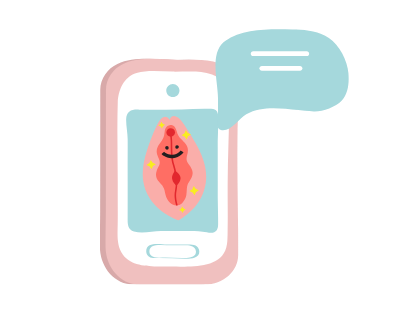
Technology and AI have taken over every industry, and that includes women’s health and beauty. Femtech is where your most intimate parts get their own apps, gadgets, and data dashboards. Vaginal health trackers—a techy new tool promising to decode everything from your pH levels to your period mood swings.
What Even Is a Vaginal Health Tracker?
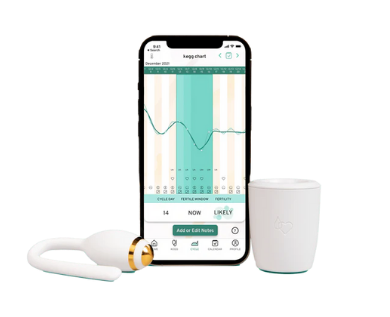
Your vaginal pH is a little ecosystem. When it’s balanced (between 3.8 and 4.5), everything should be working in good order. But when that balance gets thrown off? Say hello to yeast infections, bacterial vaginosis, and other uninvited guests.
I like to call it a “pussy cold.” Sometimes your vagina is just under the weather and vaginal health trackers that monitor pH can give you an early heads-up that something’s off—before symptoms get worse or you need to make a frantic call to your gyno.
In the simplest terms, a vaginal health tracker is a device (or sometimes just an app) designed to monitor what’s going on in and around your vagina. Think of it like a Fitbit for your feminine health—only instead of steps and sleep, it’s tracking things like:
- Vaginal pH levels (hello, yeast infection radar 👀)
- Menstrual cycles
- Discharge patterns (yes, there’s an app for that)
- Fertility and ovulation windows
- Hormone fluctuations
- Symptoms like itching, dryness, or odor
Some trackers are wearable, some are insertable, and some are just smartphone-based logs. A few even use AI to give you personalized insights, like “Your cycle is late, but your stress level is high, which could be the reason.” Basically, it’s your vagina’s way of joining the wellness tech party, as it seems there is an app for everything these days!
Do You Need One?
Short answer? No.
Longer answer? It really depends on your goals.
Here’s a simple checklist to figure it out:
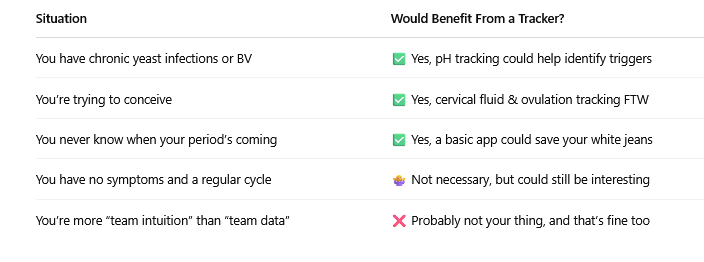
What Kind of Vaginal Health Trackers Are There?
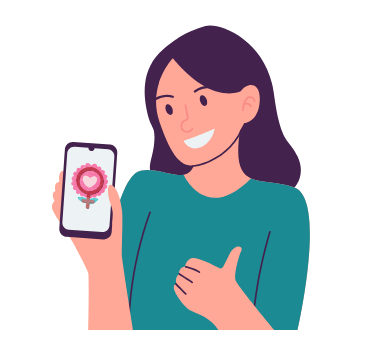
Let’s break down some of the most popular vaginal and cycle health trackers out there—some are high-tech, some are app-only, but all are trying to make your intimate health less of a mystery.
The Kegg
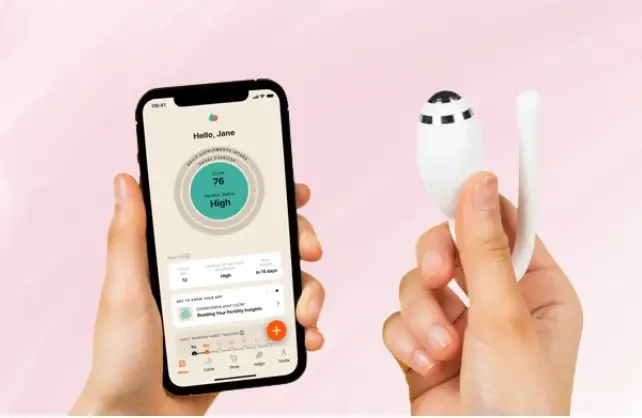
The Kegg is a sleek, egg-shaped device that you insert for just a few minutes a day. It uses electrolyte sensing to analyze your cervical fluid and give real-time fertility insights. Translation? It can help you predict your most fertile days, whether you’re trying to conceive or just want to understand your body better. It syncs with an app, so you can track patterns over time and get personalized suggestions.
What sets Kegg apart is how non-invasive it feels. You don’t have to wear it all day—just insert it briefly, get the data, and go. Plus, it’s kind of pretty for a vagina gadget (they know the branding game). It’s FDA-registered and built with medical-grade silicone, so it’s safe and durable, though it’s definitely an investment at around $250+.
Evvy
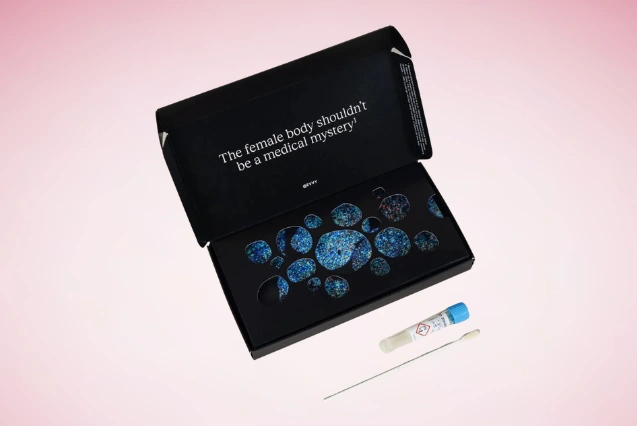
Evvy is like 23andMe for your vagina. You swab yourself at home, send it in, and get a deep breakdown of your vaginal microbiome—the bacteria that can influence everything from UTIs to odor to fertility. The app doesn’t just give you a score—it explains what each finding means, and even suggests possible ways to improve or maintain balance.
What makes Evvy shine is its blend of clinical-grade science and user-friendly design. It partners with researchers to study vaginas in-depth, which means your data also helps advance vaginal health knowledge. Bonus points for being aesthetically pleasing and super educational.
Daye’s Probiotic Smart Tampons
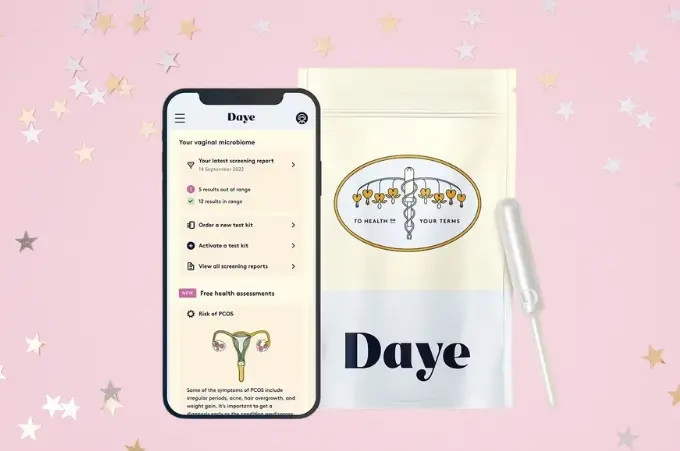
Daye first made waves with their CBD-infused tampons (yes, this is real), but now they’re stepping into the vaginal health tracker world with smart tampons that monitor vaginal microbiome conditions. These tampons collect a sample while you’re on your period, then send it to a lab for testing. You get your results via a personalized dashboard that breaks down your vaginal flora—like which bacteria are thriving, which aren’t, and whether things look balanced or not.
They’re essentially giving your period products double duty: comfort and diagnostics. It’s ideal for women who deal with recurring infections or just want to know what’s going on down there without making an awkward doctor’s appointment every time.
Clue
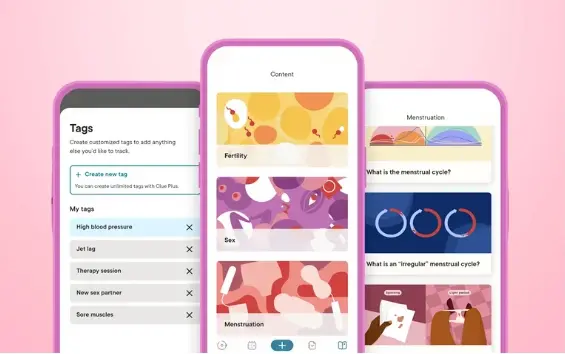
Clue started as a period tracker but has evolved into a full-fledged reproductive health tool. You can log PMS symptoms, moods, pain levels, and more. Its algorithm learns from your entries and starts predicting things like ovulation, period start dates, and even potential cycle irregularities.
Clue’s design is super clean, and it’s backed by science (and actual research partnerships). It’s especially useful for users with irregular cycles or conditions like PCOS, who need a more customized tracking experience. It’s not a physical tracker, but it gives you deep insight over time.
Flo
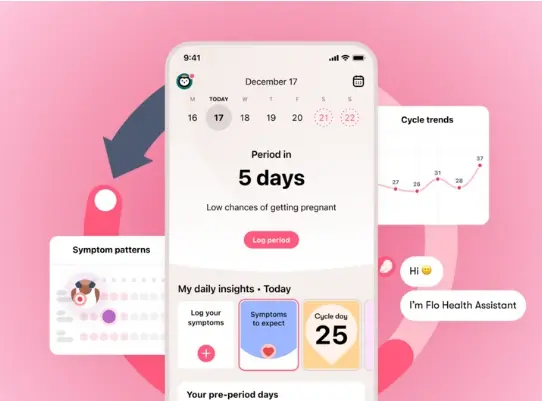
Flo is another heavyweight in the cycle-tracking app world. It’s designed for everything from first periods to menopause, and its AI adapts based on what you log. You can track over 70 symptoms (yes, really), from cramps to skin changes to libido levels. It even gives daily health insights and curated articles based on your logs.
What makes Flo standout is its community aspect—you can ask anonymous health questions and get answers from doctors or fellow users. It’s super beginner-friendly and widely used, which means it’s constantly improving based on feedback.
inne
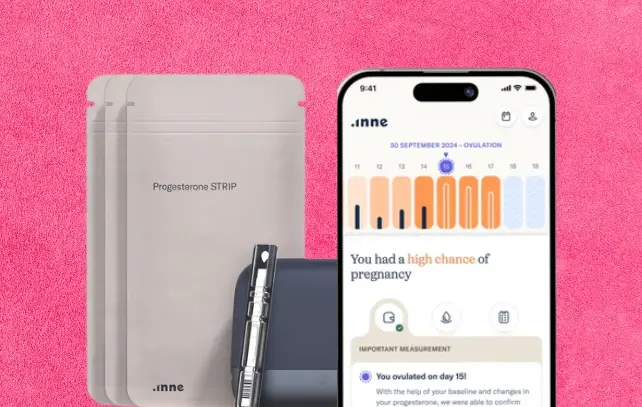
inne offers a hormone-tracking mini-lab you can use at home. You spit into a saliva sensor (no blood or swabs needed), and it analyzes your progesterone levels to help pinpoint ovulation. It’s a more holistic view of fertility than just period tracking, and works well even if your cycle is irregular.
It’s also discreet and kind of… chic? If you like the idea of biohacking but not sticking anything inside you, inne is a strong contender.
Aura Fertility Ring
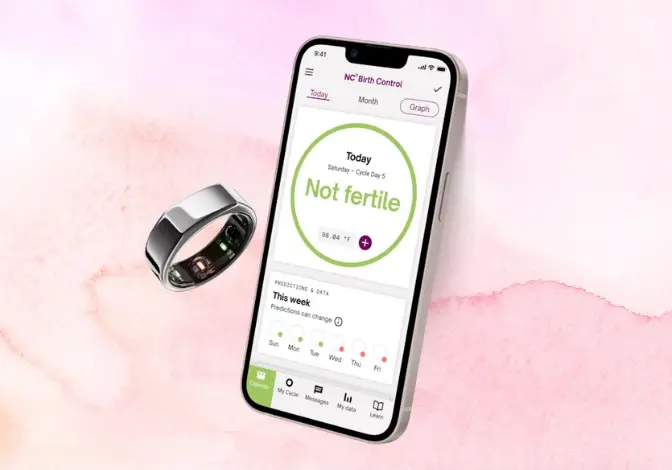
Kind of like an Oura Ring for your uterus. Aura tracks skin temperature, heart rate, and sleep patterns to predict ovulation and fertility windows. You wear it like jewelry, and it quietly collects data without interrupting your routine. No inserts, no apps to obsess over daily—just long-term passive tracking.
It’s still relatively new and gaining traction, but early adopters love it for its minimalist vibe and comfort. Best for people who want to “set it and forget it.”
TLDR? Here’s an easier to chart for a quick overview.
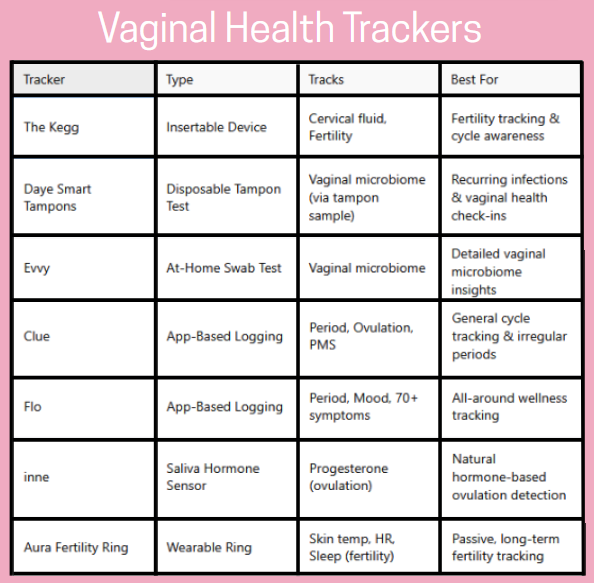
Vaginal Health Trackers ≠ Magical Cures
A quick PSA: these trackers are tools, not miracle workers. They won’t:
- Treat infections
- Replace pap smears
- Solve hormonal imbalances overnight
But they can:
- Help you spot patterns
- Start more informed convos with your doctor
- Teach you to notice subtle changes in your body
And honestly? That alone is pretty powerful.
Privacy Check: Where Does All That Data Go?

Ah yes, the elephant in the (very pink) room.
Any time you’re sharing sensitive health info with an app or company, you want to know:
- Are they selling your data to third parties?
- Can the data be used against you (like in states with strict reproductive laws)?
- Is your account protected with encryption, or could your ex log in and see your whole fertility calendar?
Always read the privacy policy (yes, even if it’s boring). Look for companies that are GDPR-compliant, allow anonymous use, and give you full control over your data.
Final Thoughts: High-Tech Vagina, Low-Stress Attitude
The bottom line is this: your vagina has always been doing cool things—now we just have gadgets to help you appreciate it more.
Whether you go all-in with a smart tampon or just download an app and start logging your moods, vaginal health tracking is there if (and only if) you want it. No pressure, no judgment.
And remember: You don’t need a device to tell you you’re a queen. But hey, it doesn’t hurt to have one that texts you that you’re ovulating.
Also Read:






